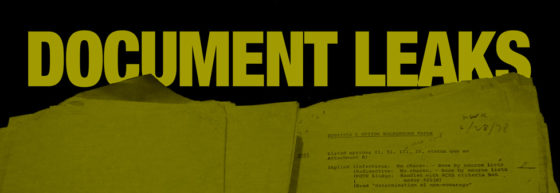Independent Science News has published a new article entitled Risk and Responsibility: Farming, Food, and Unconventional Gas Drilling by researchers Michelle Bamberger and Robert E. Oswald. With a predicted worldwide “boom” in unconventional gas drilling, many individuals and communities may soon be facing the health and environmental risks associated with hydraulic fracturing (or fracking). During hydraulic fracturing, radioactive, hydrocarbon, and other harmful chemical pollutants can reach humans and farmland via many routes. These include leaks from damaged or defective well casings, leaks from waste water impoundment ponds, the illegal dumping of waste water, and the spraying of used fracking fluid on roads for dust control.
Their article points out many current impediments to accurate risk assessment, including “inadequate or nonexistent predrilling testing of air and water in many cases and by nondisclosure agreements tied to victim compensation that remove the details of specific cases from further study.” They challenge the current regulatory situation where the burden of proof is on the public to prove, after the fact, that environmental harm has occurred, rather than industry being required to provide scientifically acceptable proof of the safety of the process before drilling. Michelle Bamberger and Robert E. Oswald call for hydraulic fracturing to be “severely limited or banned” until the many scientific and transparency issues can be resolved.
The authors are a former Veterinary Researcher and a Professor in the Department of Molecular Medicine at Cornell University, Ithaca, NY.
NOTE: For a library of scientific papers analyzing health and environmental effects of conventional and unconventional energy production visit the PSE website.
